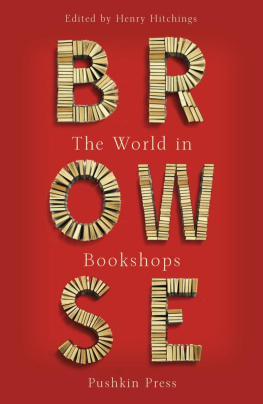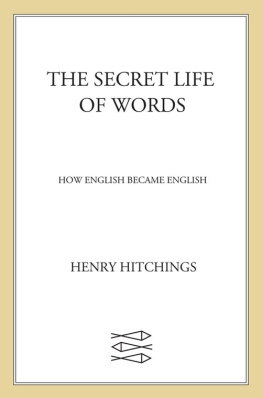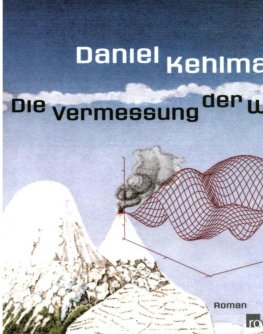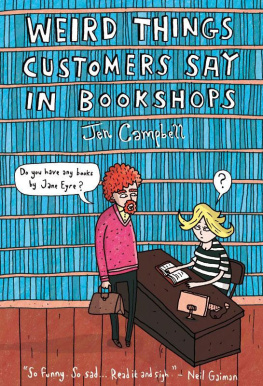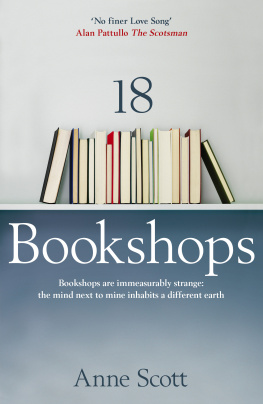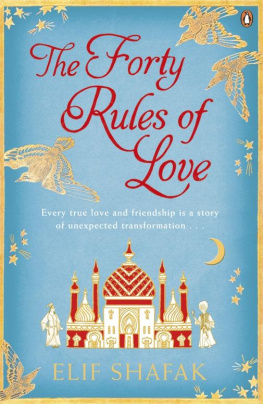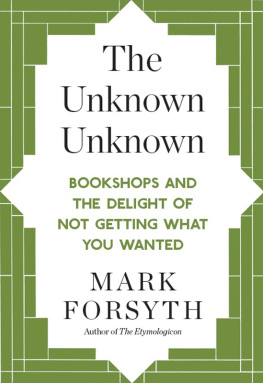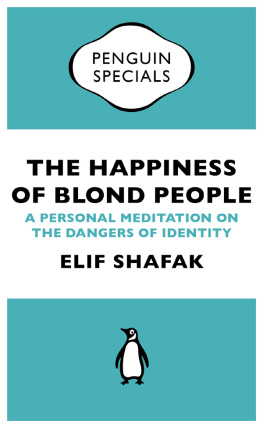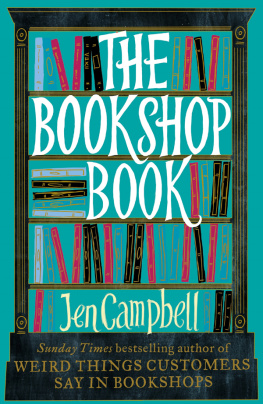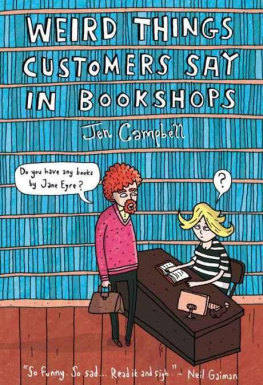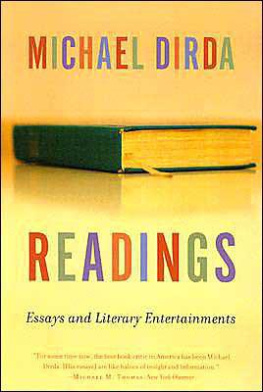Introduction:
A Place to Pause
H ENRY H ITCHINGS
I m nine years old, and Ive been given a book token for my birthday. My mother takes me to spend it. The shop, all polished wood and green carpet, makes me think of a billiard table. Ive recently read and enjoyed Frank Herberts Dune, a novel full of characters with names that strike even a nine-year-old as quaintly improbable (Duncan Idaho, Wellington Yueh), so I pick out the sequel, Dune Messiah, and then I grab the next two volumes in the series, Children of Dune and God Emperor Dune. Who are you trying to impress? asks another shopper, before adding, The best ones Beach Party on Dune. I havent heard of it, I say sheepishly, and he laughs.
Recalling this now, I can picture exactly what the Dune books looked like, even though I gave up on the series halfway through the second volume. But its the book that didnt exist that looms largest in my imagination; Beach Party on Dune really ought to have been writtenhello again, Duncan Idahoand sometimes I fantasize about finding a bookshop so profusely stocked that itll be there.
In 1939 Jorge Luis Borges published an essay in which he pictured a total library containing every possible book, and he returned to this theme in his story La biblioteca de Babel, visualizing a library that encompassed all that is able to be expressed, in every language. What I have in mind is a variant on this: a total bookshop, which includes, like Borgess library, a faithful catalogue of all it contains, a panoply of false catalogues, proofs of the falsity of the false catalogues, proof of the falsity of the true catalogue
Im fifteen, and at the local bookshop, a single bright room with tall white shelves, theres a large display stand dominated by Picador and Faber paperbacks, all of which look enticing. For a couple of weeks I eye up The GreatShark Hunta chunky collection of Hunter S. Thompsons journalism, dense with trippy verbiage. (Looking back, Im not sure why I didnt buy it, but wonder if perhaps it was beyond my schoolboy budget.) One day, while flicking through The Great Shark Hunt, Im distracted by a friend who wants to go and procure some Nerdssweets that are like fizzy drips of candle waxand its only when I am a hundred yards from the shop that I realize I have liberated the book. I now face the challenge of returning it, undetected. It would be easier to keep it, of course, and part of me is willing to pretend that Hunter S. Thompson is the sort of writer whose books one ought to steal. But instead I go back and try to sneak The Great Shark Hunt into its rightful place on the display standexcept the stand chooses this moment to revolve extravagantly, and I almost knock it over, and then it almost knocks me over, and the shops proprietor, who resembles an angry hawk, swoops in to ask me what the hell Im doing.
Throughout my teens, bookshops served as places of furtive self-education. I still like the idea that a bookshop can be an informal library, though not a lending library, and I know I learnt a lot about literature by snooping around well-stocked fiction sections. I can remember catching a production of Whos Afraid of Virginia Woolf? at a time when I knew nothing of Virginia Woolf; I concluded that she was someone I ought to be daunted by, and it was therefore a thrill, not long afterwards, to see a whole shelf of her novels (the Oxford Worlds Classics editions, each with a yellow spine and a flash of red at the top) and to pluck down Orlando and start reading.
Hefor there could be no doubt of his sex, though the fashion of the time did something to disguise it What madness was this? The very words There could be no doubt of his sex created room for doubt, and I was hooked. The next paragraph, nearly three pages long, contained a word Id never seen before, asphodel, and the febrile pleasure of encounter caused me to collide with another customer, who clearlyand not unreasonably, though incorrectlythought this was my idea of flirtation. So much to know. So much to find out. And always the sense of the bookshop itself as a cabinet of curiosities, a time machine, and a place of minor embarrassments.
Im eighteen, and I am holding a copy of Ezra Pounds Cantos. This is in Blackwells bookshop in Oxford, in the second-hand department, a place where earnestness goes to ramify and breedand where all the stock seems overpriced but also either urgently necessary or naggingly desirable. Pounds Cantos is a mixture of the two: I ought to be familiar with these poems, given that Im about to study modernism, and this particular copy, with Henri Gaudier-Brzeskas sketch of Pound on the spine, is in mint condition. I turn it over several times, trying to work out how itll fit in with the bedlam of my student bookshelves. A voice intrudes: You wont understand that. It emanates from the beard of a visiting scholar Ive previously noticed haunting the English faculty library, and he removes the book from my hand and says to his young companion, If I press this on you, will you read it? I want to tell him that the volume is mine and that hes a shit-breeched poltroon who shouldnt be pressing anything on anyone. But he beats me to the punch: Stick to the easy stuff, little man.
At eighteen, the easy stuff was the last thing I wanted.
I was determined to stretch myself, to augment my reality.
Pounds sprawling, refractory epic, with its fusion of personal and intellectual history, was precisely what I was after.
I recently reread the Cantos, inspired to do so by visiting San Michele, the island in the Venetian lagoon where Pound is buriedand where, in the driving June rain, I was wretchedly incapable of locating his grave. Now I look again at my copy of the book. Ive written the date inside: 2nd November 1993. Hmmm. I was eighteen then, so maybe the visiting scholars young companion wasnt persuaded after all.
Im twenty-six, and Im in the City Lights Bookstore in San Francisco, which is famous for having been founded by the poet Lawrence Ferlinghetti (and less famous for having been co-founded by Peter D. Martin, who was the son of the anti-fascism crusader Carlo Tresca). I have read Ferlinghetti and think of him as an indescribably romantic figurethe name helps, and so does the fact that he published Allen Ginsbergs Howl and was prosecuted on account of its alleged obscenity. For half an hour I nose around the shop, which somehow puts me in mind of an abandoned tram; I manage to avoid being the rube who asks Wheres Ferlinghetti today?, and I buy a copy of McSweeneys, a newish and much-admired literary magazine I have heard of yet never previously seen. Its a hardback, costing about double what I paid for my dinner. But it contains a 44-track CD, each piece of music on it corresponding to an item in the magazine; so, for instance, theres a one-page short story by Lydia Davis, Oral History with Hiccups, and the track that goes with it, by They Might Be Giants, is called Drinkin and is an instrumental number featuring a bass saxophone, presumably played by John Linnell, who came ninth in

